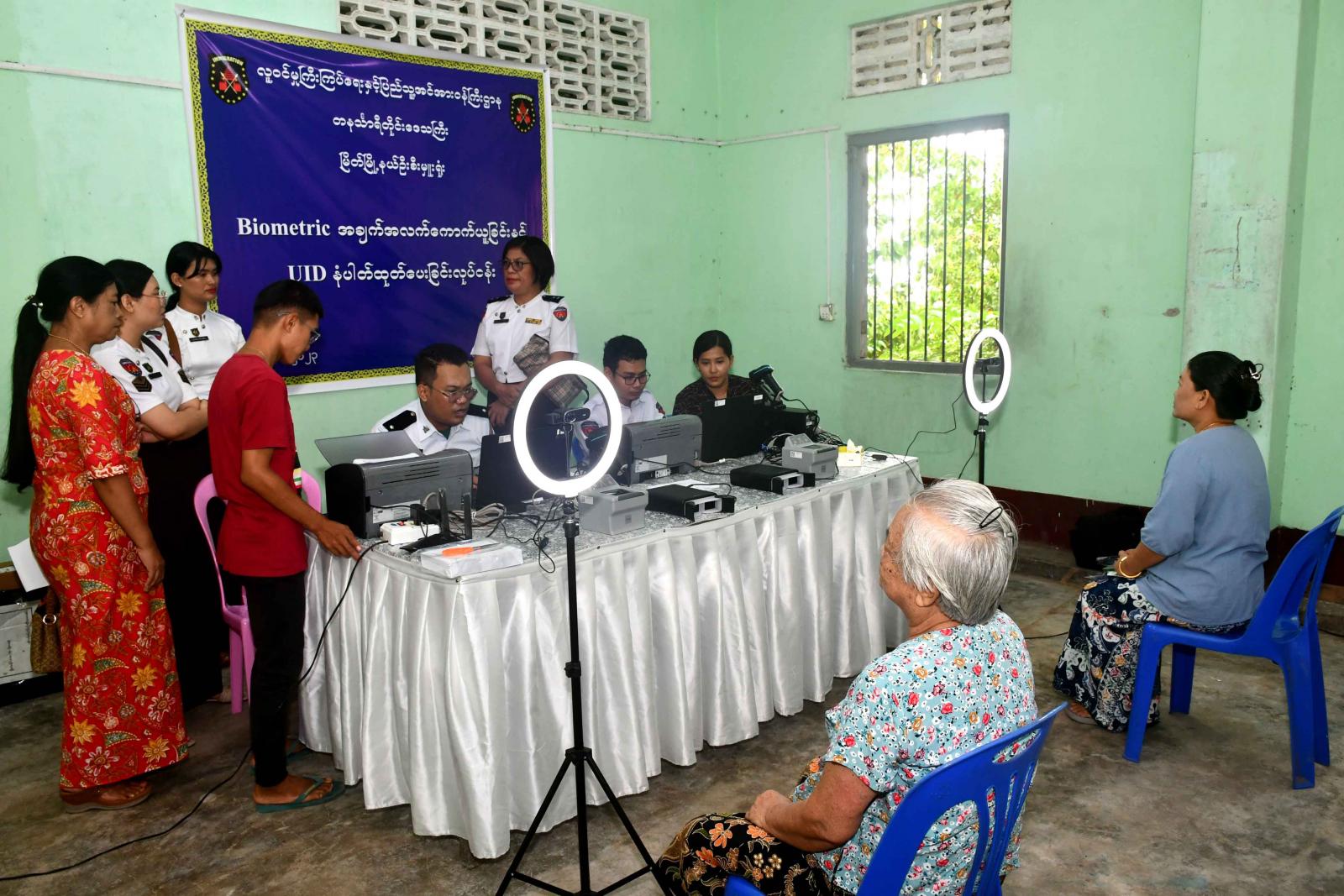Nay Pyi Taw, 21 October
The military council has been collecting biographic and biometric data of individuals in some regions and states.
The military regime explained that collecting biometric data is a pilot step for issuing smart cards to department members, families, and citizens in order to improve socioeconomic life.
According to the junta, the collected data is saved in the National Database using the Electronic Identification e-ID system, and each citizen will receive a 10-digit Unique ID number card within a day.
The Unique ID number is the basic system to be used in conjunction with e-government applications, and people can easily apply for education, health, and other social services with this card.
Currently, Biographic and Biometric data are being collected in some townships of Yangon, Mandalay and Tanintharyi Regions, and in Mon State, and the military council has announced that it will be conducted for all residents of the respective townships.
An observer of the military council’s immigration and population processes said, “The military council is planning to implement inspection using smart cards and computer technology, but it is still not possible under the conditions of a developing country.

Attempts were made during the NLD government to build an electronic identification system (e-ID) in Myanmar, but it was suspended due to the military coup, and the military council resumed the program in 2022.
The military council has said that it will continue to issue National ID Smart Cards in accordance with the law as an effective service to the public.
In addition to the information already filled in, fingerprints, facial scans, and eye scans are included in the conversion of ID cards from paper to smart cards.
According to a former political prisoner, the military council is attempting to control the people in various ways rather than issuing smart cards.
Currently, many Buddhists, let alone the other religions, do not even get a paper ID card for citizenship verification.
The military council is mainly checking household registration in townships and collecting biometric data as part of a pilot program to replace residents’ identification cards with smart cards.
News – Than Lwin Times
Photo- MOI


